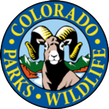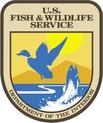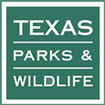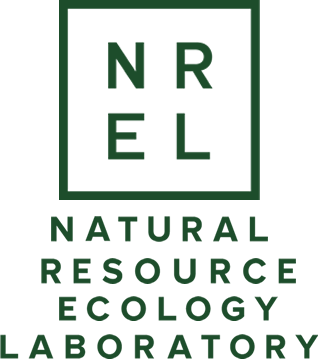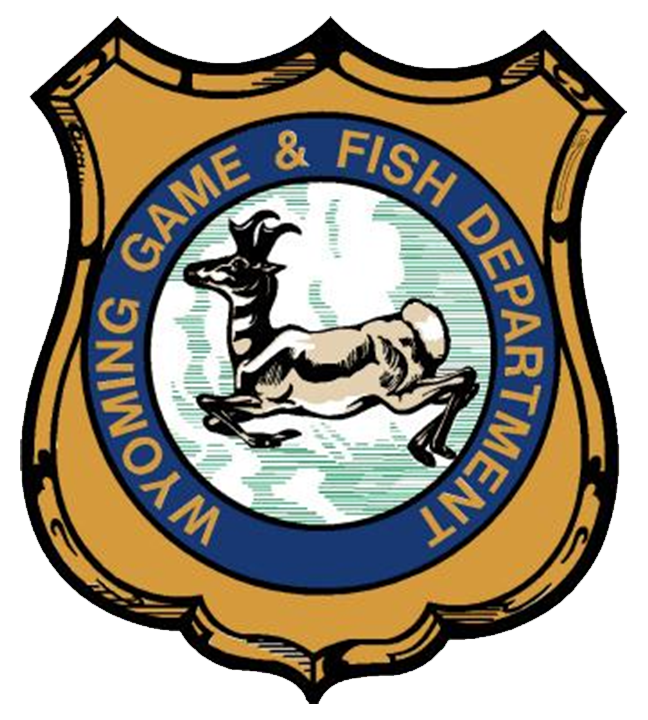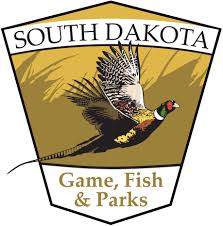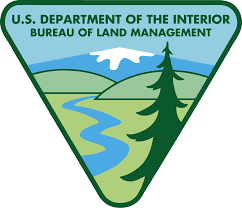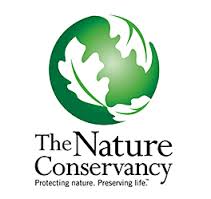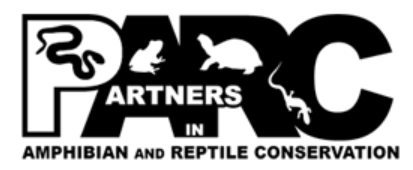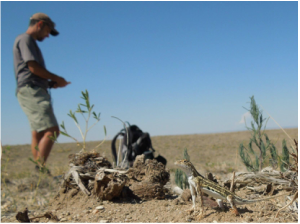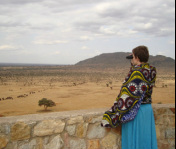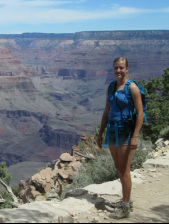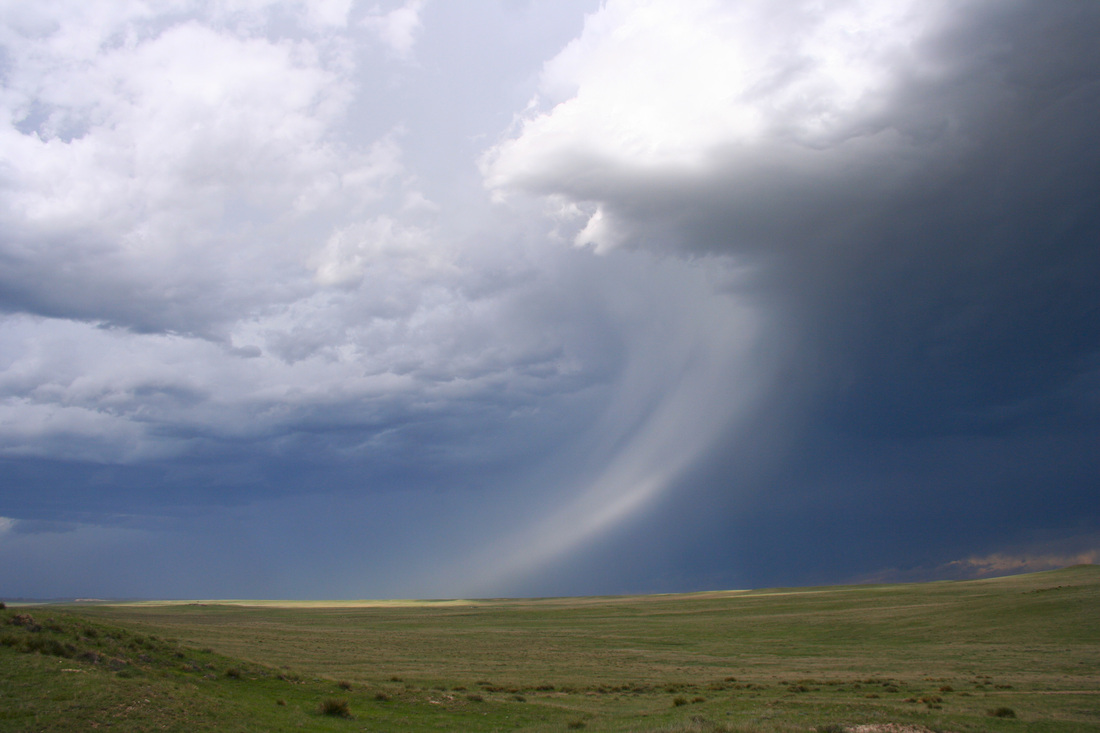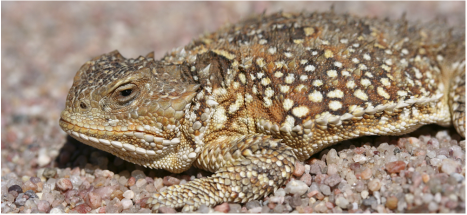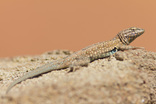Guiding Conservation of Native Reptiles
The Great Plains Reptile Monitoring Project is developing and testing a standardized, volunteer-based survey that would enable monitoring of terrestrial reptile populations. The field effort began in 2013 to test standardized field protocols for a large-scale monitoring program for terrestrial reptiles.
This research project is designed to investigate the potential impacts of changes in habitat and climate on distributions of terrestrial reptiles. Results of the project will be used to (minimally):
*Brief biographical sketches of project personnel can be found at the bottom of this page.
- Determine which reptile species can be reliably monitored using rapid-inventory, visual encounter surveys.
- Provide current estimates of species occurrence, and insight into which climate and/or habitat factors may drive changes in reptile distributions in the Great Plains, and...
- Make recommendations to land and wildlife management agencies on the best survey standards for continued monitoring of these important species, enabling proactive future conservation efforts.
*Brief biographical sketches of project personnel can be found at the bottom of this page.
Project Support & ContactThe Great Plains Reptile Monitoring Project is a collaboration among Colorado State University's Natural Resource Ecology Laboratory, Colorado Parks & Wildlife, U.S. Fish & Wildlife Service, U.S. Geological Survey, Texas Parks & Wildlife, and the Colorado State Land Board. The project is also supported by South Dakota Game, Fish & Parks, Wyoming Game & Fish, Kansas Department of Wildlife, Parks & Tourism, U.S. Forest Service, Bureau of Land Management, the Partners in Amphibian & Reptile Conservation (PARC), Colorado PARC, the Horned Lizard Conservation Society, and The Nature Conservancy, and many volunteer observers and private landowners.
Danny is currently wrapping up his dissertation and preparing to submit manuscripts for peer-review in professional publications. We anticipate all publications will be open-access and will post links here as they become available. |
Additional Logistical / other Support:
Project Personnel
|
Danny Martin - Ph.D. Candidate & Project Coordinator
Danny is a certified Associate Wildlife Biologist with over 9 years of post-graduate professional experience. He is a native of Kansas, where he fell in love with the grasslands of the Great Plains. He has lived in Colorado for over 14 years, including 2 years working for USDA and almost 7 years with Colorado Parks & Wildlife. Danny has a B.S. in Wildlife Biology from Kansas State University, a M.S. in Biology from Minnesota State University (where he studied river otters), and began work towards a Ph.D. in Ecology at Colorado State University in August 2011. His prior professional experiences include work with arthropods, many mammal species (e.g., coyotes, river otters, swift fox, white-tailed prairie dogs, grizzly bears, black-footed ferrets), Mountain Plover, and horned lizards. Danny has served in volunteer leadership positions in The Wildlife Society, the Horned Lizard Conservation Society, Southwest Partners in Amphibian & Reptile Conservation and Colorado PARC. He strives to improve our understanding of native wildlife, and thus our abilities to effectively conserve them, through use of simple, standardized sampling methods. Danny enjoys wildlife/nature photography and bicycling. |

Dr. Cameron Aldridge - Project Advisor
Dr. Aldridge is an Assistant Professor in the Ecosystem Science and Sustainability Department and the Natural Resource Ecology Laboratory at Colorado State University. He holds a joint appointment at the U.S. Geological Survey’s Fort Collins Science Center. Dr. Aldridge is interested in use of quantitative methods to improve our understanding of hierarchical processes related to wildlife ecology and conservation. For example, he has used distribution modeling to investigate impacts of landscape-scale disturbances on distributions of Greater Sage Grouse, improving our understanding of processes that influence grouse use of the landscape – and thus guiding conservation efforts. |
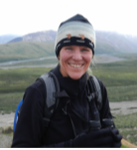
Dr. Larissa Bailey - Project Advisor
Dr. Bailey is an Assistant Professor in the Fish, Wildlife, and Conservation Biology Department at Colorado State University. Her research focuses on developing and applying quantitative methods to improve our understanding of wildlife population dynamics. Dr. Bailey has improved conservation efforts for amphibians through implementation of rigorous sampling designs and occupancy modeling, and is renowned among students for her ability to explain complicated topics in a way that makes them much easier to understand. |
2016 - 2017
Danny is currently working to complete his dissertation by 2018, so we will not be hiring a field crews in 2016-2017. If you are interested in volunteering, the project will still accept volunteer data for the Photo ID Project! Please consider contributing other reptile observations to HerpMapper.
2015 Crew
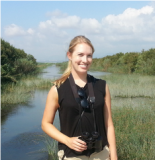
Kyla Garten - Crew Biologist
Kyla is a 2014 graduate of Humboldt State University where she received her B.S in Wildlife Biology and B.A in Spanish Education. She has a variety of experience working with animals, including volunteering at an animal clinic in Quito, Ecuador, and conducting an independent research project studying variation in bird behavior in northern California. Kyla is generally interested in wildlife conservation, but has an affinity towards reptiles and wants to dedicate her efforts to working with these often under-appreciated species. She has lived in southern and northern California, which has exposed her to a wide range of herpetofauna and habitats. In her free time, she explores the redwood forests and rocky coasts of northern California - backpacking, rock climbing, and searching for herpetofauna. Kyla is interested in returning to Latin America to work with reptiles, and in attending graduate school in the near future. 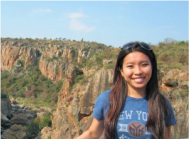
Danielle Tran - Crew Biologist / Database Manager
Danielle graduated from UCLA in spring '15 with a B.S. in Biology and a minor in Evolutionary Medicine. She first became interested in field research while visiting Swaziland in 2012 during which she conducted surveys for species including Leopard Tortoises and Marabou Storks. As part of her studies, Danielle has participated in several field research projects involving amphibians and reptiles, including working with endangered California Tiger Salamanders and conducting herpetofaunal inventories in remote areas of the Mojave Desert. She has volunteered at the Natural History Museum of Los Angeles County in the Herpetology Department. With a special interest in effects of urbanization on herpetofauna, Danielle continues to pursue an interest in these fascinating taxa. She hopes to gain more experience with wildlife and conservation research to help her in her pursuit of a career in wildlife diseases ecology. Danielle is currently working as a veterinary technician intern. 
Carissa Homme - Crew Biologist
Carissa holds a B.S. in Zoology & Physiology (University of Wyoming, 2007) and a M.S. in Environmental Science & Engineering (Colorado School of Mines, 2010). A dedicated research scientist, Carissa has several years of professional experience in applied environmental microbiology and biomedical research. However, her true passion is wildlife conservation. Carissa has volunteered at the Denver Museum of Nature & Science as a team leader and vertebrate collections assistant. She has been involved with public outreach events that demonstrated the important ecological roles played by reptiles. In her spare time Carissa enjoys hiking, camping, snowboarding, and navigating Colorado mountain roads on a motorcycle. She is currently pursuing a Ph.D. in Environmental Science & Engineering (Colorado School of Mines) |
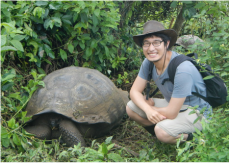
Jon Suh - Crew Biologist
Jonathan was born and raised in upstate New York where he spent his childhood looking for frogs, turtles, and whatever other wildlife he could find. Eventually his love of nature led to him to earn a degree in Biology from Boston University in 2014. Along the way he studied abroad in Ecuador where he traveled extensively around the country visiting the Amazon, the Galapagos, and numerous cloud forests in search of reptiles and amphibians. Since graduating Jon has returned to Ecuador to work as a Teaching Assistant in the same program, and has worked as field assistant studying anole behavior in Florida. Recently he has picked up photography as a means of sharing his interest in nature with others, and he hopes to study tropical lizards in graduate school in the near future. 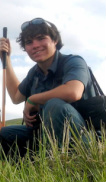
Jake Milford - Crew Technician
Jake is between his 2nd and 3rd years pursuing a B.S. in Wildlife Biology at Colorado State University. Originally from Texas, he spent his summers outdoors catching and observing reptiles and amphibians, and developing a passion for these often under-appreciated creatures. His prior professional experience includes volunteering for the Center for Snake Conservation (surveying for Prairie Rattlesnakes), and working for the Great Plains Reptile Monitoring Project in 2014. Jake has served as a Steering Committee member for Colorado PARC since 2014, and his interest in reptiles and amphibians is a major influence guiding his professional career. 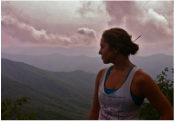
Beth Wittmann - Crew Biologist / Database Manager
Beth worked for the USGS Amphibian Research & Monitoring Initiative in the spring and summer of 2015. In late August 2015, Beth started working for the Great Plains Reptile Monitoring Project again (see her 2014 biography below for more), helping both in the field and in error-checking the large database. She is currently living in upstate New York and is interested in pursuing a graduate degree. |
2014 Crew
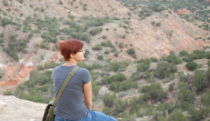
Celina Bycenski - Crew Leader
Celina received her B.S. in Wildlife Biology from West Texas A & M University in 2013. Since then she's interned with the Texas Parks & Wildlife Department on a Wildlife Management Area in the panhandle of Texas. She finds that although she loves all wildlife and believes deeply in the need for conservation of all species, reptiles are often overlooked. Celina is currently residing in Texas and is pursuing options for a M.S. program in wildlife management/conservation. 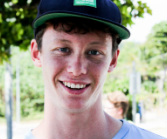
Devin Jacobs - Crew Member
Devin completed his B.S. in Wildlife Biology at Colorado State University in 2014. His previous work included an internship with the U.S. Forest Service and an independent research project investigating interspecific interactions between two species of gliding possum in the tropics of Australia. Devin also worked on an independent research project (see more at bottom of this page) in 2014. He has always had a strong interest in wildlife and the outdoors, and plans to pursue this passion throughout his career. Devin began a M.S. at University of Nevada Reno in August 2015. |
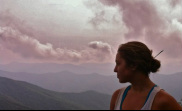
Beth Wittmann - Crew Leader
Beth is a 2013 graduate of the University of Vermont where she received a B.S. in Wildlife Biology. She was involved with the Vermont Reptile and Amphibian Atlas and worked with Burlington Parks and Recreation to facilitate the movement of wildlife through urban corridors. She has also worked to identify corridors in wildlife sanctuaries of southeast Kenya and has volunteered with the Galapagos National Park on projects involving lava lizards, sea lions, and sea turtles. Beth aspires to work with snakes in the future to aid in their conservation and improve public awareness of their role in a healthy ecosystem. Beth worked with USGS on a Boreal Toad project in Colorado in 2015, and came back to work for the Great Plains Reptile Monitoring Project at the end of the 2015 season. 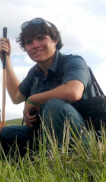
Jake Milford - Crew Member
Jake is an undergraduate currently pursuing a B.S. in Wildlife Biology at Colorado State University. Originally from Texas, he spent his summers outdoors catching and observing reptiles and amphibians, and developing a passion for these often under-appreciated creatures. His prior professional experience includes volunteering for the Center for Snake Conservation (surveying for Prairie Rattlesnakes). Jake is currently a Steering Committee member for Colorado PARC. His interest in reptiles and amphibians is a major influence guiding his professional career. Jake came back to work for the project in 2015. |
2013 Crew
Undergraduate Student Mentees
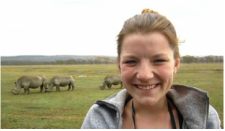
Carey Seefeld (Spring 2015) - Skills for Undergraduate Participation in Ecological Research (SUPER)
Carey's SUPER project is investigating how changes in the environment influence size of neonate Short-horned Lizards (using data collected in northeastern Colorado over the past 14 years). She is comparing hypotheses related to 1) the relative importance of conditions mother lizards are exposed to prior to and during development of offspring, on neonate size at birth; and 2) investigating more immediate impacts of weather events and temperature on growth of neonates in the weeks between their birth and first entry into brumation. Carey graduated from CSU in May 2015 with a B.S. in Ecosystem Science & Sustainability. She is currently interested in sustainable, organic farming practices. |
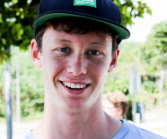
Devin Jacobs (Spring 2014) - Skills for Undergraduate Participation in Ecological Research (SUPER)
Devin's SUPER project used occupancy modeling to investigate how weather factors influence detection of Short-horned Lizards in shortgrass prairie of northeastern Colorado. While modeling variation in detection probabilities can greatly improve occupancy models, here we wanted to investigate detection in an effort to improve survey protocols for this species. I.E., Under what weather conditions is detection greatest for Short-horned Lizards? Devin graduated in May 2014 with a B.S. in Wildlife Biology from CSU and worked for the Great Plains Reptile Monitoring project through December 2014. He presented a poster of his SUPER project work at the SUPER poster symposium (Spring 2014), Kansas Herpetological Society meeting (November 2014), Colorado Partners in Amphibian & Reptile Conservation meeting (*Best Student Poster Presentation award, 31 January 2015), and the Front Range Student Ecology Symposium (*Best Undergraduate Poster Presentation award, 25 February 2015). |
